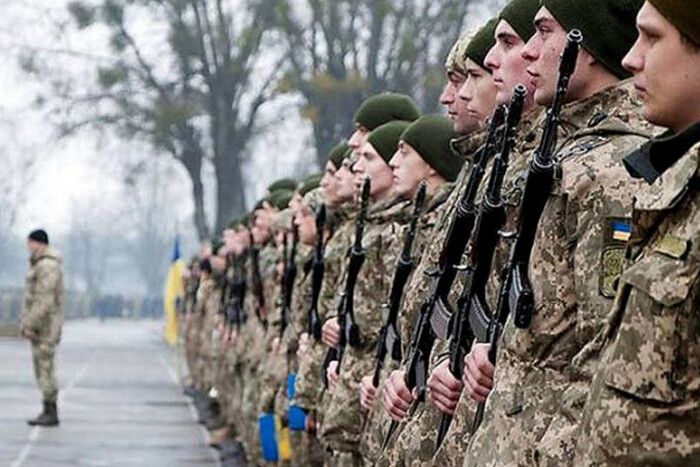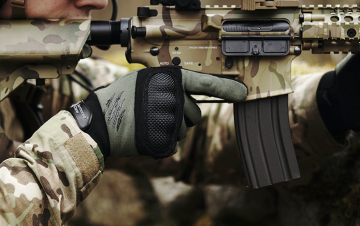I constantly strive to develop and acquire new knowledge, my experience and additional education confirm this.
Mobilization in Ukraine is an important element of ensuring the country's national security and defense capability. Mobilization measures involve the mobilization of reserves, military-technical potential, as well as the involvement of citizens in military service in accordance with the procedures established by law.
In recent years, Ukraine has experienced a difficult situation due to the conflict and aggressive actions of the Russian Federation, the war has caused a lot of damage. In this regard, mobilization measures were intensified in order to ensure defense capability and protect the territorial integrity of Ukraine.
Mobilization policy in Ukraine is based on relevant laws and regulations, which determine the mobilization procedure, rights and duties of citizens during this period. Such measures are regulated by the Constitution of Ukraine, laws on general military duty, laws on national security and other relevant legal acts.
Usually, when new mobilization laws are introduced, the list of categories of citizens eligible for deferment from military service may change. This may be related to various factors, such as changes in the social situation, the needs of the Armed Forces, economic or social factors, etc.
The exact list of categories of citizens who have the right to postponement is determined by the new law on mobilization, which was adopted by the Verkhovna Rada of Ukraine, signed by the President and will enter into force on May 18, 2024.
This law provides for a deferral for the following categories of citizens of Ukraine:
1.Provision of postponement of mobilization for persons with disabilities of all groups, confirmed by the Military Medical Commission (MMC) and re-examination of the Military Medical Commission (MMC) after 6-12 months for persons with disabilities of all groups.
2. Prisoners who have been released from service in the reserve, and who are eligible to serve only voluntarily, often have a specific status that takes into account their previous military service and experience.
3. Granting deferment from mobilization to parents of three or more minor children, provided there is no child support arrears, is aimed at protecting the interests of families with many children and ensuring their well-being in the event of possible mobilization or military conflict.
4. Granting a deferment from mobilization to parents and guardians of a minor child with a disability is important in order to provide the necessary support and care for children with special needs in the context of possible mobilization or military conflict.
5. Granting deferment from mobilization to parents who support an adult child with I or II group of disabilities is an important measure to ensure the necessary care and support of persons with disabilities in conditions of possible mobilization or military conflict.
6. Granting a deferment from mobilization to the parents of a minor child, if the other parent is in military service, can be an important measure to ensure the stability and care of the child in the conditions of possible mobilization or military conflict.
7.The provision of deferment from mobilization to single mothers and fathers is an important measure to ensure the protection and support of single parent families in the event of possible mobilization or military conflict.
8. Granting deferment from mobilization to scientists and teachers who work at a minimum of 0.75 rates can be an important step to preserve important personnel in the field of education and science during a possible mobilization or military conflict.
9. Granting deferment from mobilization to the guardians of persons who have been declared incompetent by a court is an important step to ensure the necessary care and support of persons with disabilities in the event of possible mobilization or military conflict.
10. Granting deferment from mobilization to dependents of parents with group I or II disabilities, if their spouse also requires care, is an important step to ensure the necessary support and care for vulnerable individuals in the context of possible mobilization or military conflict.
11. Granting a postponement from mobilization to grandchildren of grandparents with I or II group of disabilities, if close relatives are absent, sick or mobilized, is an important measure to ensure care and support of vulnerable family members in conditions of possible mobilization or military conflict.
12. Granting deferment from mobilization to persons whose relatives are missing, died during military service, or were posthumously awarded the title of Hero of Ukraine, is an important measure to ensure support and protection of families who have experienced losses due to military events.
In times of war, legal aid becomes extremely important, as conflict situations can give rise to a wide range of legal issues and problems. In general, legal aid during wartime plays an important role in ensuring the protection of human rights, supporting military personnel and their families, upholding international humanitarian law and providing assistance to refugees and displaced persons. Some of the main aspects of wartime legal aid include: leave, injury, capture, UBD, discharge from the Armed Forces, transfer to another unit, etc.
Legal advice during wartime and lawyer during hostilities help you with your question.
































